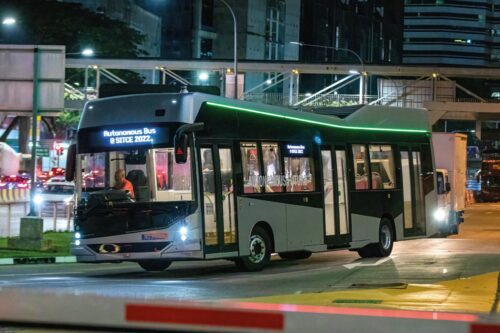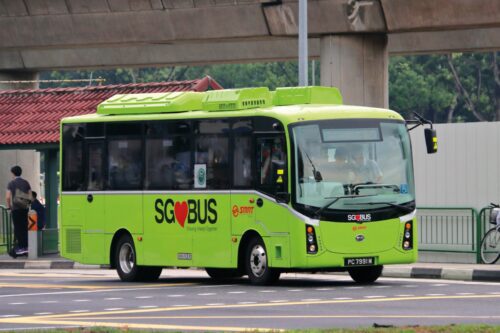
Singapore’s vision for autonomous public buses is back on track with renewed optimism and a clear roadmap, reports Poh Kai Wen
Autonomous vehicles have recently seen renewed interest from Singapore’s Land Transport Authority (LTA). In a media interview on 11 June, Acting Transport Minister Jeffrey Siow said that Singaporeans can expect to see many autonomous vehicles on the roads in the next five years. This echoes former Transport Minister Chee Hong Tat’s announcement at the opening ceremony of the biennial Singapore International Transport Congress and Exhibition 2024.
The LTA first set its sights on autonomous buses back in 2017, announcing that driverless bus services and shuttles would serve the new towns of Punggol, Tengah and Jurong Innovation District in 2022. However, these plans never materialised, instead disappearing into the void after the Covid-19 pandemic. In 2022, state-owned ST Engineering exited the autonomous bus development sphere; prior to its exit, the company developed and carried out various passenger trials of autonomous buses on Sentosa Island, Jurong Island, and university campuses.
Now with its sights set back on track, the LTA is looking into deploying autonomous vehicles on public bus routes, starting with a small-scale pilot. The contract for a pilot deployment of autonomous buses on public services attracted bids from four companies, including China’s WeRide. The pilot will begin with the purchase of six autonomous buses, which will operate on bus services 191 and 400 alongside existing manned buses, starting in mid-2026 for an initial three-year period. Unlike most autonomous vehicle trials which use minibuses of no more than 13 seats, the trial will require a larger capacity of at least 16 seats.

Based on the results of the pilot, the LTA says it may purchase up to 14 additional autonomous buses to expand the deployment to two more bus routes, a phased approach which allows for a comprehensive evaluation of the feasibility and reliability of autonomous vehicle technology while ensuring public safety.
While challenges inevitably remain, Singapore’s renewed commitment to autonomous technology marks an exciting new chapter in its journey toward a more innovative and efficient public transport system. With a strong foundation and clearer direction, the autonomous bus vision is no longer a pipe dream – it’s picking up speed.

